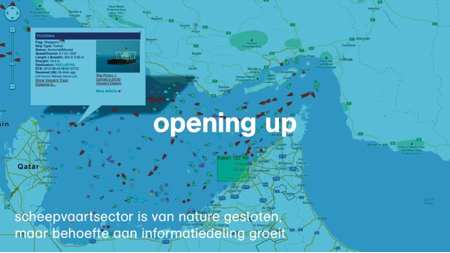A recap of some of the activity at OKFestival 2012
The following post is by Ross Mounce, one of the two OKFN Panton Fellows.
Wow! Where to begin… In this post I shall attempt to summarise some of OKFestival 2012 that was held in Helsinki just last week from the 17th to the 22nd of September.
Some Background:
I had been to the Open Knowledge Conference last year (in Berlin), where I gave an invited talk on Open Palaeontology and met lots of brilliant people in the Open Science community like Bjoern Brembs, Cameron Neylon & Peter Murray-Rust. But this year the event was even bigger, and even better – teaming up with the annual Open Government Data Camp for a mega-event.
The Event Itself:
The Aalto University buildings of the venue were wonderfully modern and well equipped for this event (inc. great WiFi which was essential for such a digital event as this). I got to Helsinki with our other Panton Fellow – Sophie Kershaw on the Tuesday, and caught the tail end of the Data Journalism session that day including an excellent, inspirational talk on shippr.org amongst other things. It detailed the amazing knowledge and insight gained from tracking the movement of ships with open data. I couldn’t help thinking that academics could learn a lot from these open data visualization experts (myself included!). This is one of the huge benefits of the conference – bringing together a melange of humanities, scientists, economists, governments, the World Bank (there were at least 20 representatives from this organisation here!), corporates (e.g. IBM), journalists, entrepeuners, and designers all connected by a shared utility of openness.

An interesting example of Shippr data – ships turn off their beacons once they pass the point for fear of pirates…
Wednesday – the Science & Academia session
I really liked the way that the conference had an introductory session to the days parallel events in the morning from 10am – 11am. If one was unsure of which stream to go to – these Morning Plenaries gave each topic stream a chance to pitch their events in a short slot to the awaiting audience. I thought this was very helpful given there were 13 separate topic streams at the conference!
I was involved in two sessions on this Science day. Firstly the Open Access discussion panel chaired by Peter Murray-Rust, the video for which is here with Tim Hubbard (Sanger Institute), Carlos Russel (World Bank), Tom Olijhoek & Mark MacGillivray (Open Access Index) and myself (University of Bath & OKFN Panton Fellow):
It’s a long video. We covered many topics including altmetrics, the lack of access for independent researchers and ivory-tower academics, the role of libraries, ‘illegally’ posting one’s own work up on the internet, incentives for OA and much more… with excellent contributions from the audience including Puneet Kishnor from Creative Commons and Matt Todd from the Open Source Drug Discovery team amongst many others.
Then after this there was the research data session with contributions from Mark Wainwright on CKAN, Mark Hahnel on Figshare and Joss Winn of the Orbital project.
Finally we finished with the Panton Fellowships Session with talks from myself on content mining for phylogenetic tree data, Open Access licencing and the various costs of Gold Open Access options:
and Sophie Kershaw on her Open Science Training Initiative (OSTI) at the Oxford University DTC:
The day was then rounded off with a hugely inspirational talk from Matt Todd who had travelled all the way from Australia(!), summarising his Open Source Drug Discovery work in the main lecture theatre, followed by a lovely traditional Finnish meal & social mixer afterwards in Ravintola Lasipalatsi.
Fast forward to 04:30 to see the start of Matt Todd’s talk
Thursday
Probably everyone’s highlight of the conference was Hans Rosling’s fantastic key note presentation which I urge you all to watch – it was brilliant, and thrilling to be there live in the audience for.
Friday
If there’s one thing that impresses me most of all about OKFestival, it’s this: it’s not just about talking – they do things here too. Lots of ‘hacking’ sessions on Friday to create new tools and collate awesome new data. Most conferences are extremely boring in that it’s just talk after talk after talk. Things get done here, new collaborations are started, fresh links across disciplinary boundaries are made connecting journalism with academia, economic development with open architectural design, and other incredible trans-disciplinary mashups. It’s a joy to behold.
I’m really glad I came to OKFestival, as ever I got a lot out of it.
Next year it’ll be in Switzerland.
Perhaps we’ll see you there?
Ross
cross-posted and modified from a previously posted version here
Leave a Reply